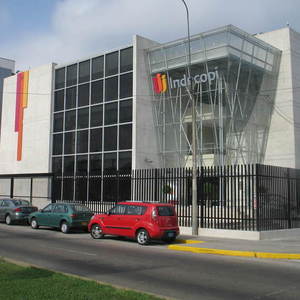Peru imposes stiff antidumping duties on Argentine biodiesel

October 27, 2016
BY Ron Kotrba
The Peruvian government announced Oct. 26 its imposition of antidumping duties on Argentine biodiesel, citing “important domestic industry damage” by way of deteriorating production, domestic sales, market share, use of installed productive capacity, profits and inventories from its national biodiesel producers as a result of the influx of cheap Argentine product.
Argentina biodiesel pricing benefits from differential export taxes, which help keep prices lower than most product in the destination markets to which it is exported.
The decision was made by the Commission on Dumping, Subsidies and Elimination of Non-Tariff Trade Barriers after an investigation analyzing the market effects of imports from Argentina over five years, from 2009 to 2014. The investigation determined that Argentine biodiesel undersold domestic Peruvian product by margins of 17 to more than 31 percent.
“Rising export volumes of Argentine biodiesel [to] Peru, together with the wide margin of underselling, [forced] Peruvian producers to market their biodiesel in low volumes and at prices below their costs during most of the review period, despite growth demand that occurred during that period, prompting an important domestic industry damage,” stated Peru’s National Institute for the Defense of Competition and Protection of Intellectual Property (Indecopi).
Advertisement
Advertisement
Tariffs on biodiesel entering Peru from LDC Argentina S.A. (Louis Dreyfus), Cargill S.A.C.I., and Bunge Argentina S.A. stand at USD$191.60, $134.70 and $141.40 per ton, respectively, roughly between 45 cents a gallon for Cargill and up to 64 cents a gallon for Louis Dreyfus. The complete list of tariff prices and companies can be found here on Indecopi’s website.
The tariffs, according to Indecopi, will be in effect for five years.
Advertisement
Advertisement
Related Stories
The U.S EPA on July 17 released data showing more than 1.9 billion RINs were generated under the RFS during June, down 11% when compared to the same month of last year. Total RIN generation for the first half of 2025 reached 11.17 billion.
The U.S. EPA on July 17 published updated small refinery exemption (SRE) data, reporting that six new SRE petitions have been filed under the RFS during the past month. A total of 195 SRE petitions are now pending.
The USDA has announced it will delay opening the first quarterly grant application window for FY 2026 REAP funding. The agency cited both an application backlog and the need to disincentivize solar projects as reasons for the delay.
CoBank’s latest quarterly research report, released July 10, highlights current uncertainty around the implementation of three biofuel policies, RFS RVOs, small refinery exemptions (SREs) and the 45Z clean fuels production tax credit.
The U.S. EPA on July 8 hosted virtual public hearing to gather input on the agency’s recently released proposed rule to set 2026 and 2027 RFS RVOs. Members of the biofuel industry were among those to offer testimony during the event.
Upcoming Events










